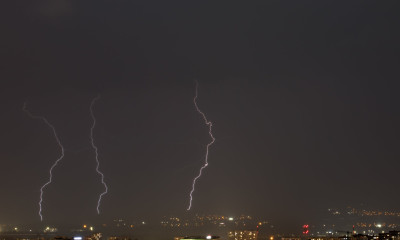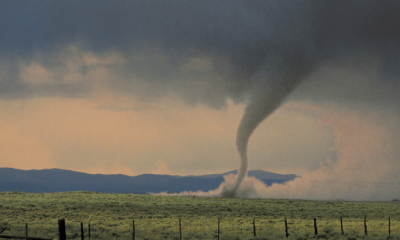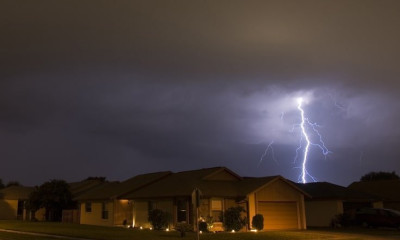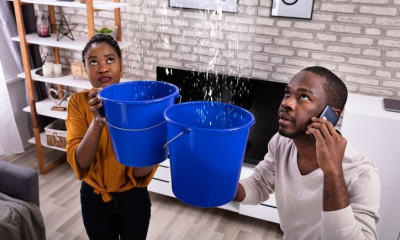Expecting the Unexpected: 13 Micro-Tips to Help Your Business Prepare for Any Property Disaster
Expecting the Unexpected: 13 Micro-Tips to Help Your Business Prepare for Any Property Disaster
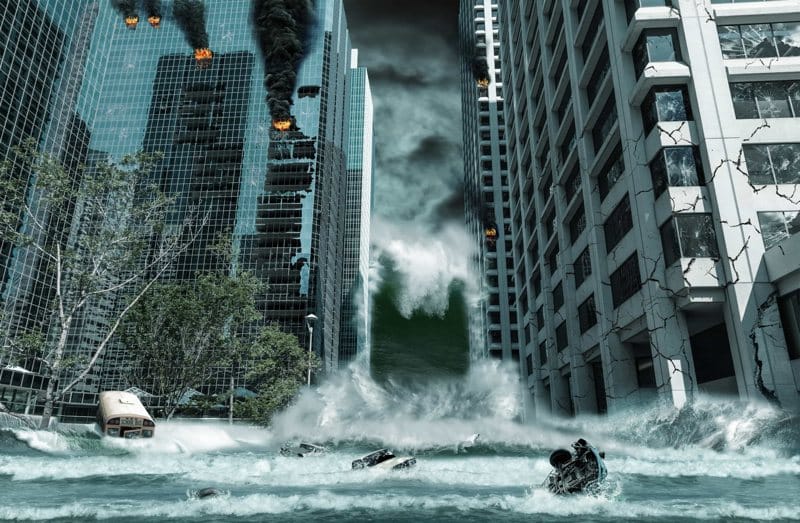
What are the key ingredients to recovering financially after a business sustains major property damage? With the Federal Emergency Management Agency (FEMA) reporting that almost 40 percent of small businesses never reopen their doors following a disaster, many business owners are looking for surefire ways to weather any storm and defy those odds.
Although it may not be possible to be 100% prepared for every type of property disaster, we’re convinced that one of the keys to survival is expecting -- and planning for -- the unexpected after-effects of a catastrophe. We have seen catastrophic losses cause problems that even the most seasoned managers would not believe were possible so thinking outside of the box is extremely important.
Ronald A. Cuccaro
Executive Chairman of Adjusters International & Founder of Adjusters International/Basloe, Levin & Cuccaro
We spoke to Cuccaro and to John W. Marini, President & Chief Executive Officer of Adjusters International, to find out how business owners can prepare financially for the unusual and unexpected problems that can come from natural and man-made disasters:
Establish a Loss Management Team
Have a management team in place for your property disaster plan development that includes legal, finance, risk management and operations/maintenance personnel and appoint a designated leader for that team who will report back to senior leadership. The team will be responsible for the insurance claim preparation, settlement and recovery process before, during and after a disaster.
“It's your business so don’t wait for the insurance company to tell you what you should be doing. Be prepared to activate a pre- and post-business disaster plan to protect your market, customer base, stakeholders and employees,” said Marini.
Research Your Industry
Find out what property disasters your competitors have suffered and examine as many case studies and different scenarios as possible to identify your potential exposures.
“By considering the common and uncommon possibilities before a disaster strikes, you’ll be better prepared to deal with covering the unexpected outcomes when your policy comes up for renewal,” said Cuccaro.
Base Your Policy Needs on Loss Costs Vs. Premium Costs
You should purchase the policy that best protects your company against risks rather than settling for the policy with the lowest priced premium. By having a good understanding of what a disaster could cost your company, you’ll be in a better position to justify the higher price tag that better coverage brings.
The only way that an insurance company can reduce their premium costs is by reducing your coverage and that is not the best way to protect your company. This is one area in which you don’t want to skimp
John Marini
President & CEO
Understand the Valuation Process
The valuation process for an insurance claim is different than the methods used for traditional accounting purposes so the numbers that your finance department provides from past tax assessments and other records may not be accurate. The insurance company will have their representatives -- including experts like mechanical engineers, structural engineers, forensic accountants -- come in and give their own opinions on damage assessments and repair costs. Your team needs to be prepared to provide and prove their own.
“The insurance company’s experts will often slice and dice the policyholder’s damage assessments in order to control the claim settlement so it’s very, very important to put your best foot forward at the onset of the claims process by having your own professional do the valuations for you,” said Cuccaro.
 Buy Special Coverages
Buy Special Coverages
Consider the unique problems that a disaster could cause for your business and add any special coverages to your policy that you may need to protect your business against them. Add-ons such as Equipment Breakdown Insurance, Business Interruption Insurance, Extra Expense Coverage, Service Interruption Coverage, Brands and Labels Coverage and Pollution Cleanup Coverage can make a substantial difference in the final settlement amounts you receive after a disaster and in your business’s ability to continue or resume operations. You should also think about the impact that a disaster could have beyond the insured premises on suppliers, customers, and other business locations
Every industry has unique insurance needs. For instance, high-end restaurants may have a longer period of restoration because they have to re-train their cooks, servers and other staff while retail operations may have inventories that fluctuate widely from period to period requiring extra coverage during times of heavy inventory. Special coverages can be purchased to cover those extra costs.
John Marini
President & CEO
Remember the Ramp Up Time
When companies have been out of business for many months, the ramp-up period can be long and difficult. For example, a business could be resuming operations with little to no customer base or with new or refurbished manufacturing equipment. It can take longer than expected to rebuild a client list or to return to normal production levels.
There are just a whole host of variables that impact your company’s ability to ramp up to its pre-loss level of operations. Since the period of indemnity in standard business interruption coverage terminates when the property is expected to be restored using due diligence by the insured. This extended ramp up time is not covered unless additional coverage is purchased. Even if things are not running smoothly yet – there needs to be a cushion there to allow some extra ramp-up time.
Ronald A. Cuccaro
Executive Chairman of Adjusters International & Founder of Adjusters International/Basloe, Levin & Cuccaro
Don’t Forget Your Deductibles
Many business owners assume that they’re covered from dollar one but they could be responsible for the first 10% or 20% of the loss amount since most commercial policies include significant deductibles. This can be an unpleasant surprise if you haven’t planned for that expense.
“High deductibles can mean that a business will be on the hook for a substantial amount of money. They need to read and understand the language in their policy and be prepared to cover any deductibles upfront,” said Marini.
Revisit Your Policy Frequently
Properties and the policies that protect them can change. Business owners need to adjust their coverage to account for inflation and for any business growth. This can be done by having a new replacement cost valuation done on your properties at every renewal to ensure that your purchased policy is based on accurate numbers. Please note that it can take between 30 and 60 days for coverage to take effect so extra coverage needs to be purchased long before any disasters hit.
This needs to be done on a regular proactive basis rather than as a reaction to a coming storm. Typically, when a named storm is threatening, insurance companies will send out notices to their agents saying if it's outbound now, coverage applications will no longer be accepted. If it's imminent that a storm is going to hit the coast, then insurers will stop writing coverage.
John Marini
President & CEO
Account for Co-insurance Penalties
Coinsurance is a property insurance provision that imposes a penalty on an insured’s loss recovery if the limit of insurance purchased is not at least equal to a specified percentage of the value of the insured building or business personal property. In other words, coinsurance penalties are triggered when a policyholder has not purchased enough insurance to cover a required amount of the value of their insured property.
For most businesses, a co-insurance clause dictates that if adequate coverage is not purchased for the company’s buildings and the business personal property, they will be subjected to a coinsurance penalty should an insured loss occur at the property. It’s very important to know if you have a co-insurance clause in your policy because if so, you need to be ready to incur the penalty if you have not purchased enough coverage.
Ronald A. Cuccaro
Executive Chairman of Adjusters International & Founder of Adjusters International/Basloe, Levin & Cuccaro
Look at Coverage for Leased Items and Office Space
Business owners who rent or lease equipment, supplies or space should know what their lease or rental contracts require from an insurance standpoint. In some cases, the owner will be responsible for repairs and in other cases, the renter will be.
“If you have property of others in your care, custody, and control, then you must be certain that your policy provides coverage for that. The same goes for rented office or work space,” said Marini.
Add Ordinance and Law Coverage
Do you have special coverage for updating your property to meet any new safety requirements that have been put in place? For example, a turn of the century building that doesn’t have sprinklers or elevators may need to be renovated and made handicap accessible meaning that you’ll have to install elevators, ramps, and fire sprinklers, et cetera. If they didn’t exist there before, then the insurance company’s not going to pay you for those improvements unless you have purchased Ordinance and Law coverage.
“This is one of the most important coverages that you can secure because state and local building codes change frequently and meeting these requirements can have a significant impact on your repair and rebuilding costs,” said Cuccaro.
Know Your Mitigation Responsibilities
Most policies require policyholders to take certain steps to mitigate damage following a loss. Property owners will want to board up or tarp broken windows and doors, turn off the main water pipes, extract the standing water, and remove all carpeting, furniture and inventory as soon as possible in order to prevent further damage and reduce mold growth. “Mitigating” damage to the property may require bringing in licensed mitigation and restoration companies to properly dry out the affected building or structure. Please note, every insurance policy requires the policyholder to mitigate/minimize the damage suffered at the property or business.
“I cannot emphasize enough how important it is to be in compliance with those duties that the policy puts on the policyholder because if these obligations are not met, then the insurance company can deny your claim,” said Cuccaro.
Be Prepared to Prove Your Claim by Lining Up Your Experts
Under all commercial insurance policies, it is the insured’s responsibility to prove their claim. The burden to document and prove the loss is on the policyholder and not on the insurance company. All policyholders have a right to hire their own experts — including engineers, restoration contractors, architects and public adjusters – throughout the claims process. These licensed professionals can handle all of the tedious details required when submitting a property insurance claim so that home and business owners can go back to caring for their families, managing their employees and servicing their clients.
I rarely run into a situation where the insured actually had staff members with free time on their hands to put the claim together. If they did, they certainly weren’t in the business of putting claims together. The policyholder is at an extreme disadvantage when they enter into the loss adjustment process for a large, complex claim. Please, don’t wait for the insurance company to tell you how to protect your business. Act proactively by establishing a planning team and implementing that plan. Don’t rely solely on the insurance company representatives to manage your claim. Make the decisions that are best for the survival of your business.
John Marini
President & CEO
Although it may never be possible to be 100% prepared for any and all types of property disasters, by expecting the unexpected, planning ahead, working with qualified experts and following the tips above, business owners will have a much better chance at thriving financially after major property losses.
Listen to our Property Insurance Roundtable podcast episode, "Expecting the Unexpected: Surviving Disasters" for more information:


